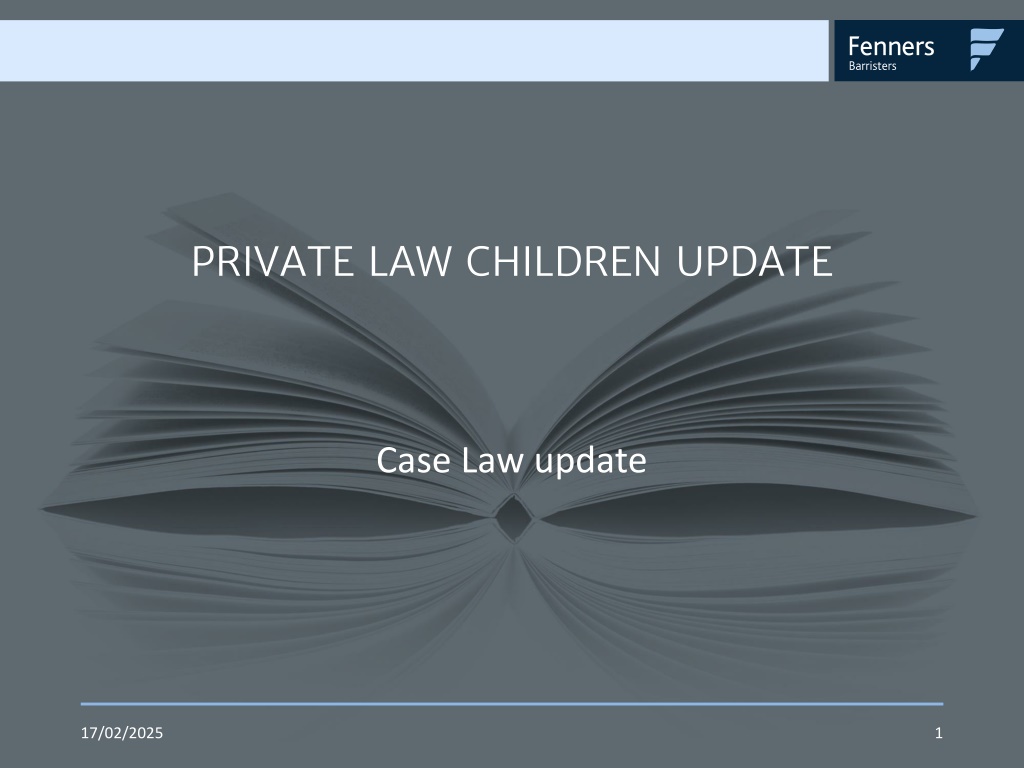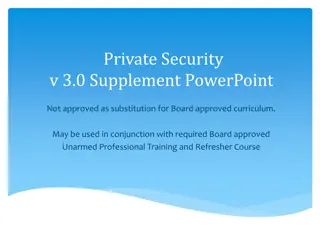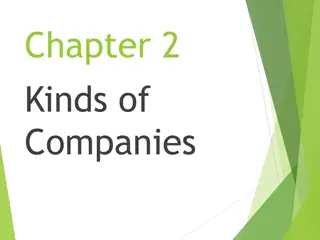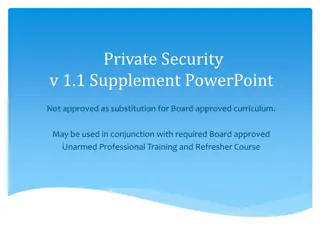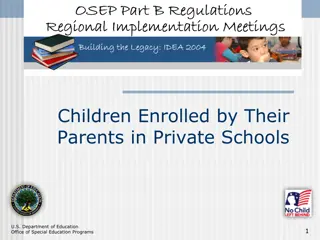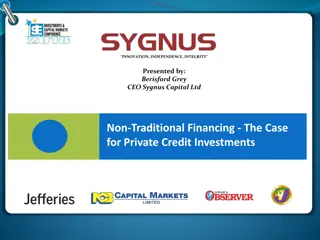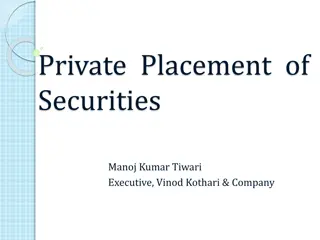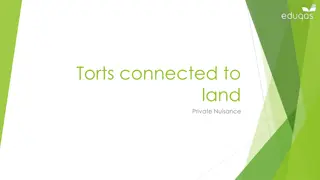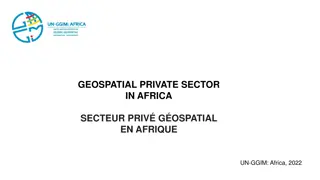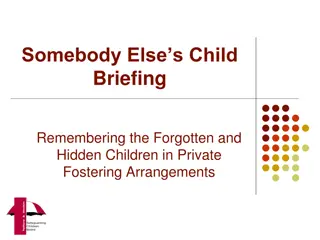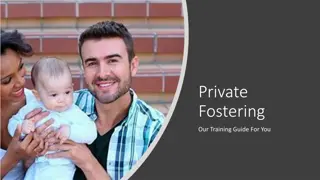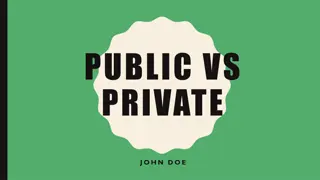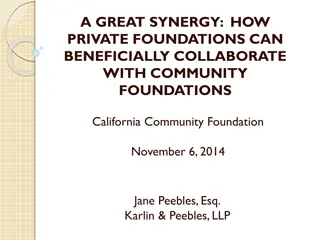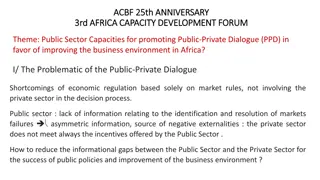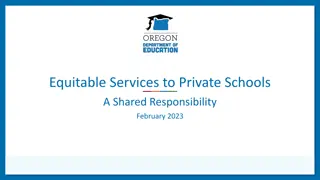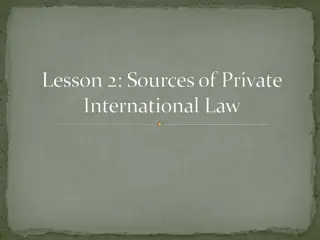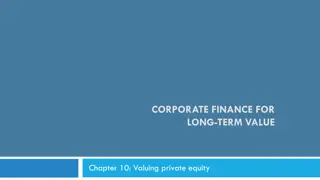PRIVATE LAW CHILDREN UPDATE
This update discusses a legal case involving child custody and contempt of court, detailing imprisonment, court orders, compliance issues, and court decisions. It also covers aspects of disclosure in private children law proceedings and the use of intimate images in court cases.
Download Presentation

Please find below an Image/Link to download the presentation.
The content on the website is provided AS IS for your information and personal use only. It may not be sold, licensed, or shared on other websites without obtaining consent from the author. Download presentation by click this link. If you encounter any issues during the download, it is possible that the publisher has removed the file from their server.
E N D
Presentation Transcript
PRIVATE LAW CHILDREN UPDATE Case Law update 17/02/2025 1
Private Law Children Update TB v MZ [2022] EWHC 3491 (Fam) Contempt of Court and imprisonment 3 children, now 22, 17 and 11. Father from Libya, Mother from Malta. Feb 2015 retained children in Libya Oct 2016 return to UK with Son. Imprisonment: August 2017 12 months February 2018 12 months November 2018 2 year November 2021 12 months 17/02/2025 2
Private Law Children Update TB v MZ - 2022] EWHC 3491 (Fam) August 2022 two further orders: Consent to girls returning with their mother Use best endeavours on a continuing basis to procure return DID HE COMPLY WITH THE ORDERS? 17/02/2025 3
Private Law Children Update TB v MZ - 2022] EWHC 3491 (Fam) His arguments against two breaches: No endeavours he could use as by refusing the first one nothing further to be done so second conditions adds nothing Submissions on Sentencing: Will do nothing to procure return The coercive element of his punishment will be ineffective He will not comply not even with time More than two years served for contempt. Result . 17/02/2025 4
Private Law Children Update P (Children: Disclosure) [2022] EWCA Civ 495 the Court of Appeal refused the father's appeal against the dismissal of his application for an order that any statements made by him in the private children law proceedings would not be disclosed to the police. incriminating himself Right to a fair Trial Art 6 To entertain a blanket application regarding hypothetical incriminating statements or evidence instead of carrying out the Re C exercise by balancing all relevant factors, resulted in giving pre-emptive priority to some factors at the expense of others .His privilege against self- incrimination entitled him to refuse to answer questions when giving evidence and avoid making incriminating statements in written evidence. It did not entitle him to refuse to engage at all. 17/02/2025 5
Private Law Children Update (K v L [2021] EWHC 3225 (Fam)) Use of Intimate images in private law cases Knowles J suggested the following approach to using intimate images in private law children proceedings where domestic and sexual abuse is alleged and where a fact- finding hearing is ordered: The definition of an intimate image A written application is required to file sexually explicit or intimate videos or photographs The court should consider alternatives to viewing the material. If the material is considered relevant, the starting point is to incorporate the lowest number of images, to be seen by as few people as necessary, viewed in the least damaging way possible 17/02/2025 6
Private Law Children Update C, Re ('Parental Alienation'; Instruction of Expert) [2023] EWHC 345 (Fam) (21 February 2023) (bailii.org) SIR ANDREW McFARLANE handed down 21st February 2023 Parties separated 2014 when children were approx. 4 and 2. Final Order 2015 Broke down 2018 return to court December 2019 - proceedings continue 17/02/2025 7
Private Law Children Update Re C ('Parental Alienation'; Instruction of Expert) [2023] EWHC 345 (Fam) Need for expert assessment of children agreed. either a child and adolescent psychiatrist or a psychologist. Permission to the expert to see both children. Dr / Ms A - Psychologist Report filed 16th Oct 2020 She concluded that the children had been alienated against their father by their mother. She considered that the eldest child showed signs of being a severely alienated child and that her younger sibling was on the same trajectory. 17/02/2025 8
Private Law Children Update Re C ('Parental Alienation'; Instruction of Expert) [2023] EWHC 345 (Fam) Interim decisions of removal in October 2020 allowed children to settle and move towards seeing both parents Final hearing June 2021 Children to live with their father and findings of fact against Mother a full and closely reasoned judgment : gave her own analysis of the extensive oral evidence given by the two parents 17/02/2025 9
Private Law Children Update Re C ('Parental Alienation'; Instruction of Expert) [2023] EWHC 345 (Fam) the judge weighed up, and ultimately accepted, Ms A's conclusion that both children had been influenced and encouraged by their mother to think very negatively of their father and that this had caused significant emotional damage to them the judge accepted the children's guardian's own separate analysis (in part based on the CAFCASS Alienation Tool) and the guardian's conclusion that, without significant change in the children's negative view of their father, it would become entrenched causing long-term emotional harm . 17/02/2025 10
Private Law Children Update Re C ('Parental Alienation'; Instruction of Expert) [2023] EWHC 345 (Fam) Appeal to Peel J 'totally without merit . Ground Ms A not a psychologist : "The complaints made by the mother about the expert are not sustainable. She was jointly appointed in March 2020 and no appeal against her appointment was made. She produced reports and gave oral evidence, which was challenged. Her expertise was firmly placed in the arena by the mother. It was open to the judge to accept her evidence and to find that she was an impressive witness. Further, her evidence was only one part of the totality of the evidence which the judge considered." 11
Private Law Children Update Re C ('Parental Alienation'; Instruction of Expert) [2023] EWHC 345 (Fam) Feb 2022- Application to re-open fact-finding element of final hearing: to review the safety of the findings made on parental alienation in light of concerns about the significance attached to Ms [A]'s opinion as set out in her assessment, reports and in oral evidence, and its consequences. Professor Wang email January 2022 Part 25 (April 2022) Application to reopen refused Judgement 15th June. Noted: The judge summarised the applicable legal context for an application to reopen, relying principally upon Re E [2019] EWCA Civ 1447: 17/02/2025 12
Private Law Children Update Re E [2019] EWCA Civ 1447: "A court faced with an application to reopen a previous finding of fact should approach matters in this way: (1) It should remind itself at the outset that the context for its decision is a balancing of important considerations of public policy favouring finality of litigation on the one hand and soundly-based welfare decisions on the other. (2) It should weigh up all relevant matters. These will include: the need to put scarce resources to good use; the effect of delay on the child; the importance of establishing the truth; the nature and significance of the findings themselves; and the quality and relevance of the further evidence. (3) 'Above all, the court is bound to want to consider whether there is any reason to think that a rehearing of the issue will result in any different finding from that in the earlier trial.' There must be solid grounds for believing that the earlier findings require revisiting." 17/02/2025 13
Private Law Children Update Re C ('Parental Alienation'; Instruction of Expert) [2023] EWHC 345 (Fam) The judge summarised the findings that she had made and stressed that they had been based upon three separate limbs, namely the evidence of Ms A, the evidence of the guardian and, thirdly, the judge's own evaluation of the parents' evidence. S.91(14) Order and order of costs ( 20,000). Mother appealed Permission to appeal granted for some other compelling reason namely that it was in the public interest for the court to consider the instruction of unregulated psychologists as experts in the family courts in general, and Ms A's instruction and role in this case, in particular 17/02/2025 14
Private Law Children Update Re C ('Parental Alienation'; Instruction of Expert) [2023] EWHC 345 (Fam) Association of Clinical Psychologists ACP Professor Wang Chair HCPC (health and care professions council) registered or Chartered membership with the BPS (British Psychological Society) Guidance May 2022 FJB/ BPS - Psychologists as Expert Witness in family courts in England and Wales - standards, competencies and expectations.pdf (bps.org.uk) 17/02/2025 15
Private Law Children Update Guidance May 2022 FJB/ BPS - Psychologists as Expert Witness in family courts in England and Wales - standards, competencies and expectations.pdf (bps.org.uk) Courts should expect that all psychologists based in the UK providing evidence in family proceedings are regulated by the HCPC (if they are practitioners) and/or that academic psychologists have Chartered membership with the BPS. It remains at the discretion of the court to appoint individuals who are not eligible for Chartered membership of the BPS or qualified for registration with the HCPC but that the court determines have relevant psychological knowledge or training. However, it should be made clear in orders and letters of instruction that these individuals are not being appointed as psychologist experts but under the auspices of other professional frameworks, e.g. Independent Social Workers with additional psychological qualifications or Psychotherapists. 17/02/2025 16
Private Law Children Update Re C ('Parental Alienation'; Instruction of Expert) [2023] EWHC 345 (Fam) Scope for ACP to intervene: 'to offer an independent analysis and account as to the core qualifications, skills and expertise required in order to be able to undertake an expert assessment in private law proceedings First hearing ACP- asked to provide authoritative document, for example a statutory instrument or formal regulation, in support of the ACP's primary contention that Ms A is simply neither qualified nor trained to hold herself out as a psychologist or to advise on therapeutic intervention in a case such as this Second hearing 30 page skeleton argument critique on Ms A 17/02/2025 17
Private Law Children Update Re C ('Parental Alienation'; Instruction of Expert) [2023] EWHC 345 (Fam) Appeal dismissed: These findings were the judge's own findings, based on the written and oral evidence of the parties. They were free-standing findings and not based upon the analysis and conclusions of either Ms A or the guardian. Separately, the guardian had come to her own conclusions as to the welfare outcome for the children. Whilst there would plainly be potential for the guardian's conclusion to be influenced by the evidence of an expert, the judge was satisfied that this, too, was a free-standing evaluation. Ms A's evidence was a third element in the judicial decision making; it was compatible with the first two, but not more influential than that. Parental Alientation is a question of fact for the Court to resolve and not a diagnosis that can or should be offered by a psychologist 17/02/2025 18
Private Law Children Update Re C ('Parental Alienation'; Instruction of Expert) [2023] EWHC 345 (Fam) A LESSON TO TAKE AWAY A lesson plainly to be drawn from the present case is the need for clarity as to an expert's qualification and/or experience. The more diffuse and unstructured a CV, the less effective it is likely to be in transmitting information crisply and clearly. In this regard, lawyers, magistrates and judges are lay readers. They need to be able to see with clarity, and in short form, the underlying basis for an individual's expertise. HCPC registration, or chartered status in the BPS, provide a reliable, one-stop, method of authentication . 17/02/2025 19
Private Law Children Update Re C ('Parental Alienation'; Instruction of Expert) [2023] EWHC 345 (Fam) It is not, however, for this court to prohibit the instruction of any unregulated psychologist. The current rules and guidance are clear and contain an element of flexibility. The question of whether a proposed expert is entitled to be regarded as an expert remains one for the individual court, applying, as it must, the principles reiterated by the Supreme Court in Kennedy v Cordia (Services) LLP (Scotland) [2016] UKSC 6 (adopting the approach in Daubert v Merrell Dow Pharmaceuticals Inc (1993) 509 US 579) that "if scientific, technical or other specialized knowledge will assist the trier of fact to understand the evidence or to determine a fact in issue, a witness qualified as an expert by knowledge, skill, experience, training, or education, may testify thereto in the form of an opinion or otherwise." 17/02/2025 20
Private Law Children Update Re C ('Parental Alienation'; Instruction of Expert) [2023] EWHC 345 (Fam) In every case the court should identify whether a proposed expert is HCPC registered. A sensible practice, where the expert is un-registered, is for the court to indicate in a short judgment why it is, nevertheless, appropriate to instruct them. work should be done to assist parties and the court at the initial stage of choosing an expert by establishing a template into which the basic qualifications of any 'psychologist' should be entered. The aim of the template will be for readers to see at a glance whether an individual is currently registered with the HCPC (and if so in what category), or a Chartered Psychologist, or not. 17/02/2025 21
Private Law Children Update Re C ('Parental Alienation'; Instruction of Expert) [2023] EWHC 345 (Fam) It would remain open to the court to instruct any person who it considers is capable of discharging the expert role in each case, but, particularly where a proposed psychological expert is un-registered, the court should be on notice to the need to look more carefully at the underlying evidence of appropriate expertise. S.91(14) (Para 104-112 of Judgement) Costs Order (Para 113-119 of Judgement) 17/02/2025 22
Private Law Children Update Questions? 17/02/2025 23
